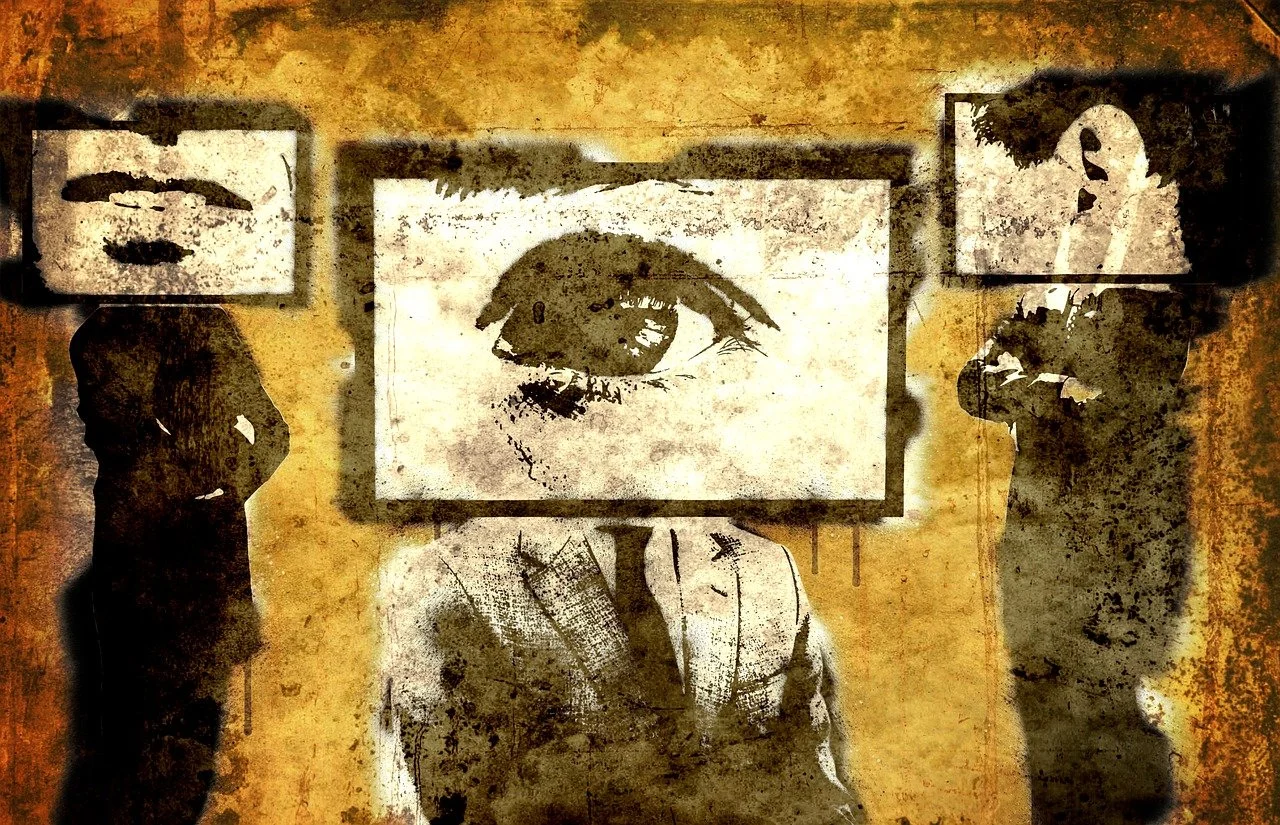
Five Dystopian YA Books to Empower You in Times of Political Uncertainty
Words By Melissa Paulsen, Art By TheDigitalArtist
Five Dystopian YA books to remind you that even in the darkest days, hope prevails. We’re stronger together.
Political uncertainty is an inevitable part of life. We all experience a wide array of emotions, formulate different opinions about what’s right, and carry traumas from past hurts that shape us. But through the power of storytelling, we’re able to share our experiences, find commonalities, and speak out against injustices to create a brighter future. While these five dystopian young adult (YA) novels feature heavy themes, they teach readers the value in thinking critically about social issues, cultivating empathy for others, and the resilience of the human spirit.
The Giver by Lois Lowry
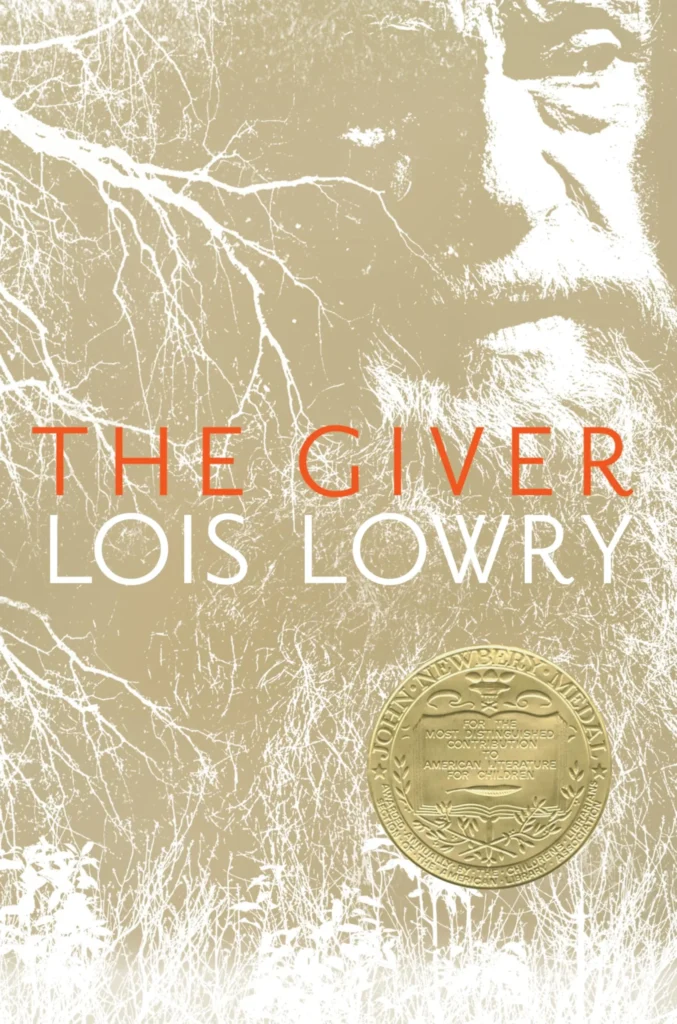
“Of course they needed to care. It was the meaning of everything.”
Long before the release of Pixar’s Inside Out taught us the importance of feeling our emotions, there was Lois Lowry’s The Giver. Often introduced to middle school students experiencing the rapid changes induced by puberty, The Giver teaches kids and adults alike how to celebrate their individuality and treasure their memories, including the painful ones.
The story follows Jonas, a twelve-year-old boy with BIG feelings, who’s part of an idyllic society called “The Community.” Everything is precisely orchestrated in The Community so there are no arguments, fear, or inequality, but at the steep cost of free will and memory. During the Ceremony of Twelve, Jonas is selected for a special assignment as the “Receiver of Memory” and becomes the apprentice of the peculiar old man known as “The Giver.” Throughout his journey with The Giver, Jonas soon discovers the importance of choice and the power of memories The Community had forsaken.
One of the lessons The Giver teaches Jonas is the need for human connection. The Giver says, “The worst part of holding the memories is not the pain. It’s the loneliness of it. Memories need to be shared.” By sharing our lived experiences—the joy, the sorrow, the frustration, all of it—we assign meaning to the world around us. Ultimately, The Giver emphasizes the beauty in having the choice to experience the fullness of human emotion and using our empathy to stand up for others against injustice.
Legend by Marie Lue
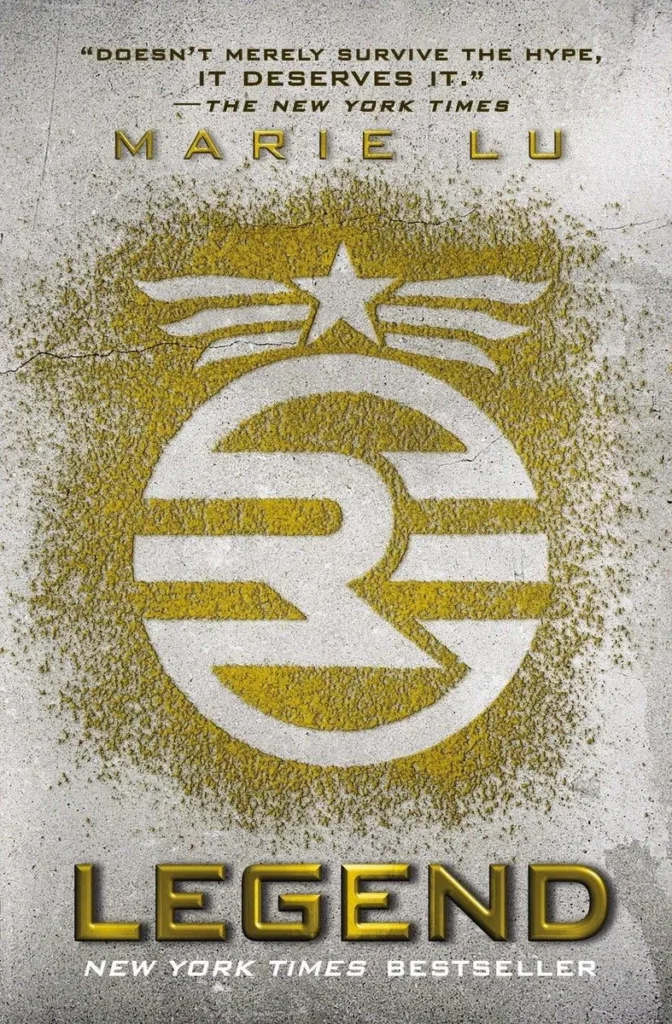
“Each day means a new twenty-four hours. Each day means everything is possible again.”
Although set in a post-apocalyptic United States, Legend depicts a reality not so different from our own. Revolving around the consequences of blind obedience and socio-economic inequality, Legend highlights the danger of a nation concentrating its power in the hands of the wealthy.
June Ipiris, born into an elite Republic family, is a patriotic and passionate military prodigy committed to defending her country at all costs. Daniel “Day” Altan Wing, born to a poor family in the Republic’s slums, is intelligent and loyal, risking his life to protect and provide for his family; he’s also the nation’s most wanted criminal. When Day and June’s paths cross over the murder of June’s brother, the two clash in a high-stakes game of cat and mouse that exposes more than they bargained for, including how far the Republic will go to guard its secrets.
A book about socioeconomic disparities may not seem “empowering,” but the characters’ mature reactions to tragedy make Legend a must read. Although June is filled with grief and rage, and Day is framed for murder, both protagonists eventually choose hope over revenge. Day says, “You live in the moment, you die in the moment, you take it all one day at a time. You try to walk in the light,” meaning that we must decide to “walk in the light” of love and hope daily for a more equitable future instead of being consumed by anger and darkness over the past.
The Hunger Games by Suzanne Collins
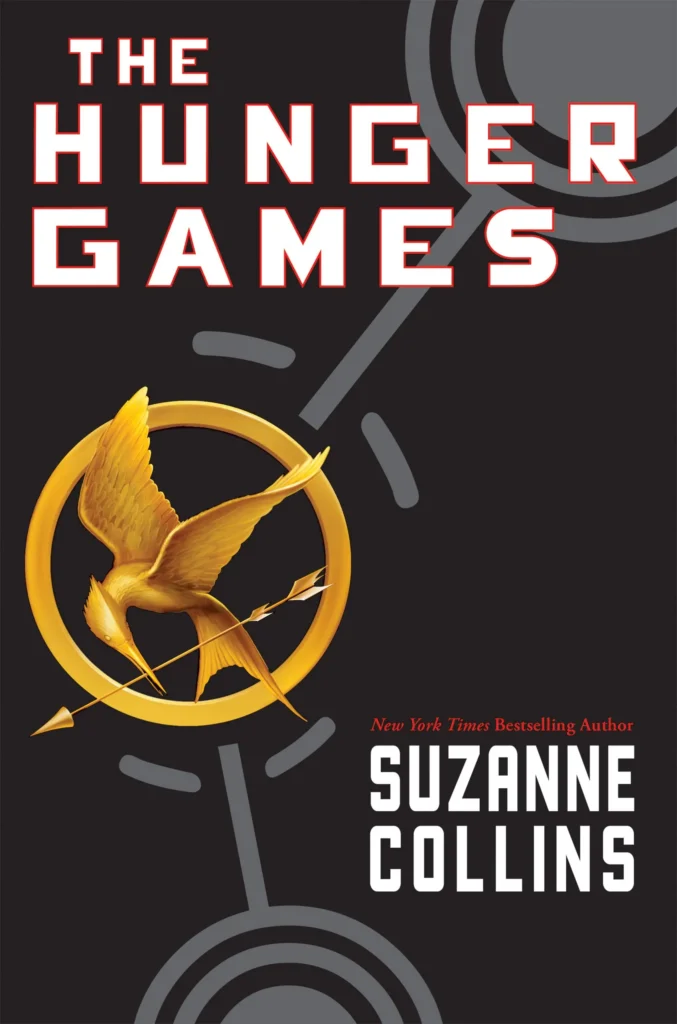
“Kind people have a way of working their way inside me and rooting there.”
The Hunger Games is often challenged due to its gruesome violence against children and young adults. However, if the brutal games themselves were all the book was about, then it wouldn’t be the global phenomenon the series is today. Instead, the Hunger Games uses violence to critique our obsession with media and our complicity in allowing authority to go unchecked. The novel forces us to grapple with the difficult question of how far we’re willing to exploit others as a source for entertainment and allow our fear to prevent us from speaking out against the mistreatment of others.
Panem, formerly the United States of America, is controlled by the elitist Capitol. To punish the surrounding twelve districts for their past rebellion, the Capitol demands two tributes—one boy and one girl—to fight to the death in the annual Hunger Games until only one tribute remains. When sixteen-year-old Katniss Everdeen volunteers in place of her sister, she relies on her sharp survival instincts to unwittingly become a contender and fans the flames of rebellion smoldering in the districts.
Beneath the barbarity of The Hunger Games are sparks of human kindness found even in the most inhumane situations. While aboard the train to the Capitol with her fellow tribute, Peeta, Katniss reflects on his undeserved kindness toward her in both the past and present, as she states, “Kind people have a way of working their way inside me and rooting there.” In the moment, she fears Peeta’s kindness as a form of manipulation, but throughout the book and trilogy, it’s the moments where human goodness shines in the face of intense hardship that keep her alive. The Hunger Games reminds readers we’re at our strongest together and collective action is the greatest remedy for counteracting abusive political regimes.
Scythe by Neal Shusterman
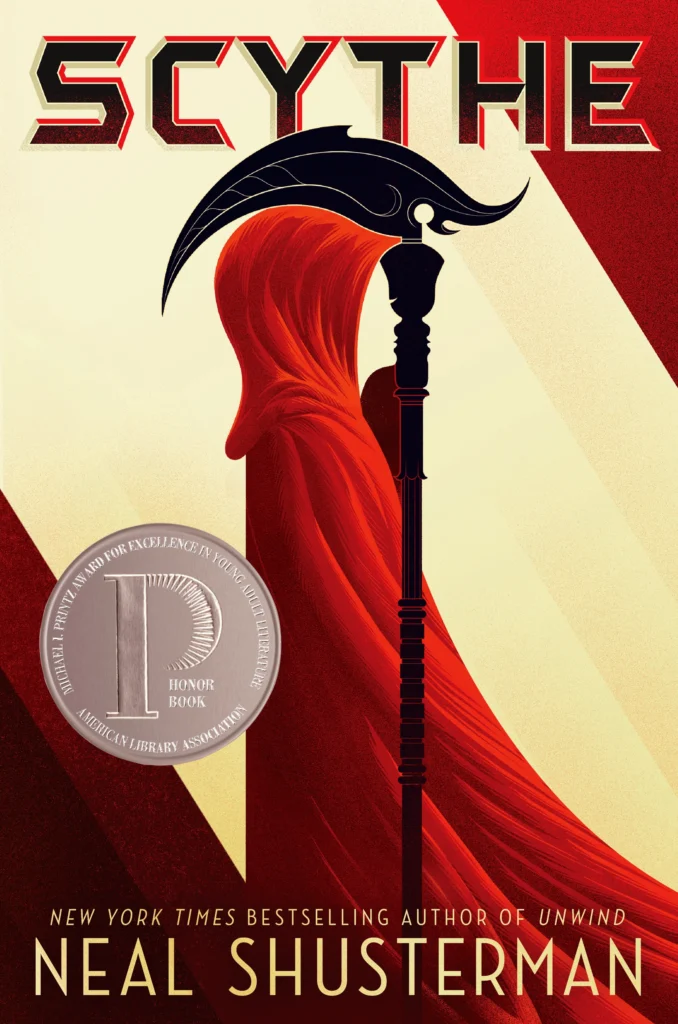
“My greatest wish for humanity is not for peace or comfort or joy. It is that we all still die a little inside every time we witness the death of another. For only the pain of empathy will keep us human.”
What would it take to create a perfect world without death, disease, and war? Neal Shusterman ponders the question in Scythe through the creation of MidMerica, a futuristic utopian society with a wicked underbelly governed by an AI overlord. The epistolary and philosophical novel explores themes like compassion, the meaning of death, and the ethical implications of technology. Through these themes, Shusterman urges readers to reflect on how they assign value to a life and why.
Scythe tells the story of two reluctant teen apprentices, Citra Terranova and Rowan Damisch, who must master the “art” of gleaning lives as Scythes to keep the population in check. However, while training under the Scythedom, Citra and Rowan quickly learn that living in a perfect world comes at a hefty price.
At the heart of Scythe is the lesson to embrace the complexity of the human spirit. Rowan reflects, “Death makes the whole world kin,” demonstrating how it’s not our appearances, power, or wealth that make our lives valuable but our mortality. Scythe encourages us to accept the darker sides of humanity while understanding we’re also capable of great acts of creativity, love, and perseverance. We must decide which side we focus on. Only by clinging to our “pain of empathy” to “keep us human” can we fight off the darkness in the world rather than letting it destroy us.
An Ember In the Ashes by Sabaa Tahir
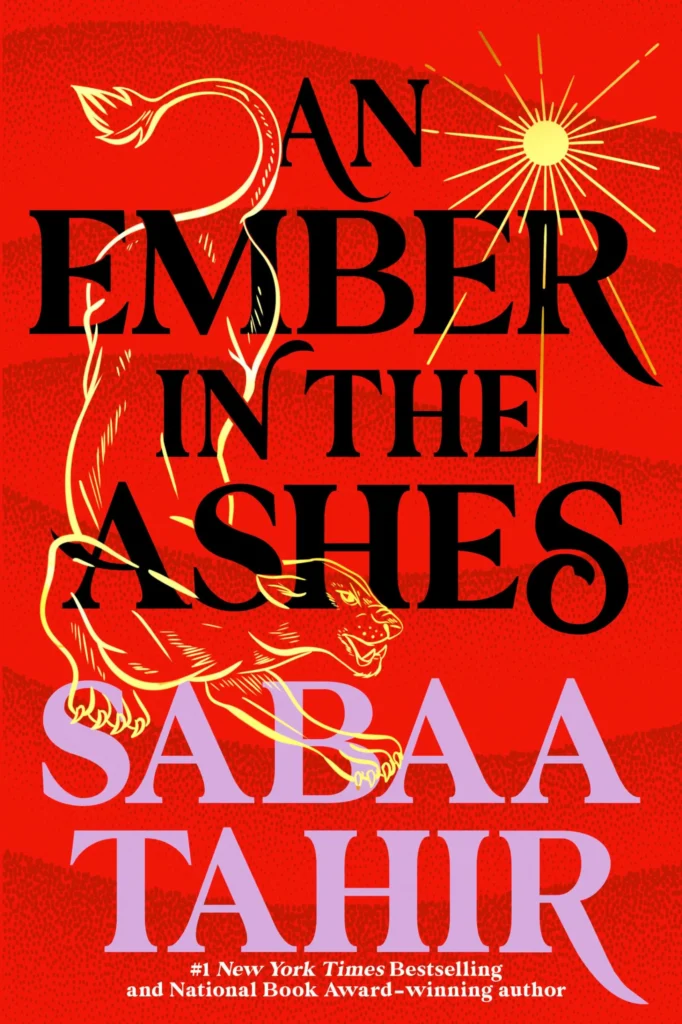
“When the fear takes over, use the only thing more powerful, more indestructible, to fight it: your spirit. Your heart.”
An Ember in the Ashes is a slept-on series that deserves as much hype as YA dystopian giants like The Hunger Games, Divergent, and The Maze Runner. Bursting with vivid world-building, a diverse cast of characters, and heart-pounding stakes influenced by global events, An Ember in the Ashes asks the question of “Why do we justify treating each other so cruelly?” The novel focuses on the harsh daily realities of oppressed people depicted through the Martial Empire’s militaristic reign over the Scholar class.
Laia is a Scholar in the Empire. She keeps her head down and does as she’s told, knowing defiance means death. But when her brother is arrested for treason, she joins a group of rebels to rescue him. Her mission? Spy on Blackcliff, the Martial Empire’s greatest military academy. There, she meets Elias, the school’s strongest soldier. When their paths intersect, they find that their decision to help each other will change the Empire forever.
Sabaa Tahir often jokes about drinking her readers’ tears because she’s constantly putting her characters through hell and back to demonstrate humanity’s resilience. In An Ember in the Ashes, Laia is advised that “When the fear takes over, use the only thing more powerful, more indestructible, to fight it: your spirit. Your heart,” representing how fear is strong, but the tenacity of the human spirit is even stronger, especially when we’re fighting for something we love. The most inspiring aspect of the bookis how the journey of Laia and Elias depicts empathy as a strength, not a weakness, in a cutthroat world constantly trying to strip it away from them.
* * *
Through five powerful and timeless stories, these authors share three key methods for preventing political corruption and injustice from taking root in our society.
First, we need to collectively keep those in power accountable for their actions, just as Katniss rallied the rebels against President Snow in The Hunger Games trilogy, and Day and June took a stand against the Republic in Legend.
Second, we should remember we have more in common with each other than differences and to treat every life with respect, as we learn from the Scythedom in Scythe and Laia and Elias’s relationship in An Ember in the Ashes.
Third, we’re born with powerful emotions that are a gift, not a curse. Our innate sense of empathy will guide us to a more equitable world, like how Jonas learned to harness his empathy to drive change in The Giver.
Each of these novels provides a dire warning to pay attention to the darker sides of humanity while also reminding us to cultivate hope through compassion, empathy, and love for one another. When we remember our shared humanity, we’ll be capable of creating a true utopia in our world instead of a dystopia.
Discover your next great read and spark your imagination by exploring more free creative work on the F(r)iction Log!